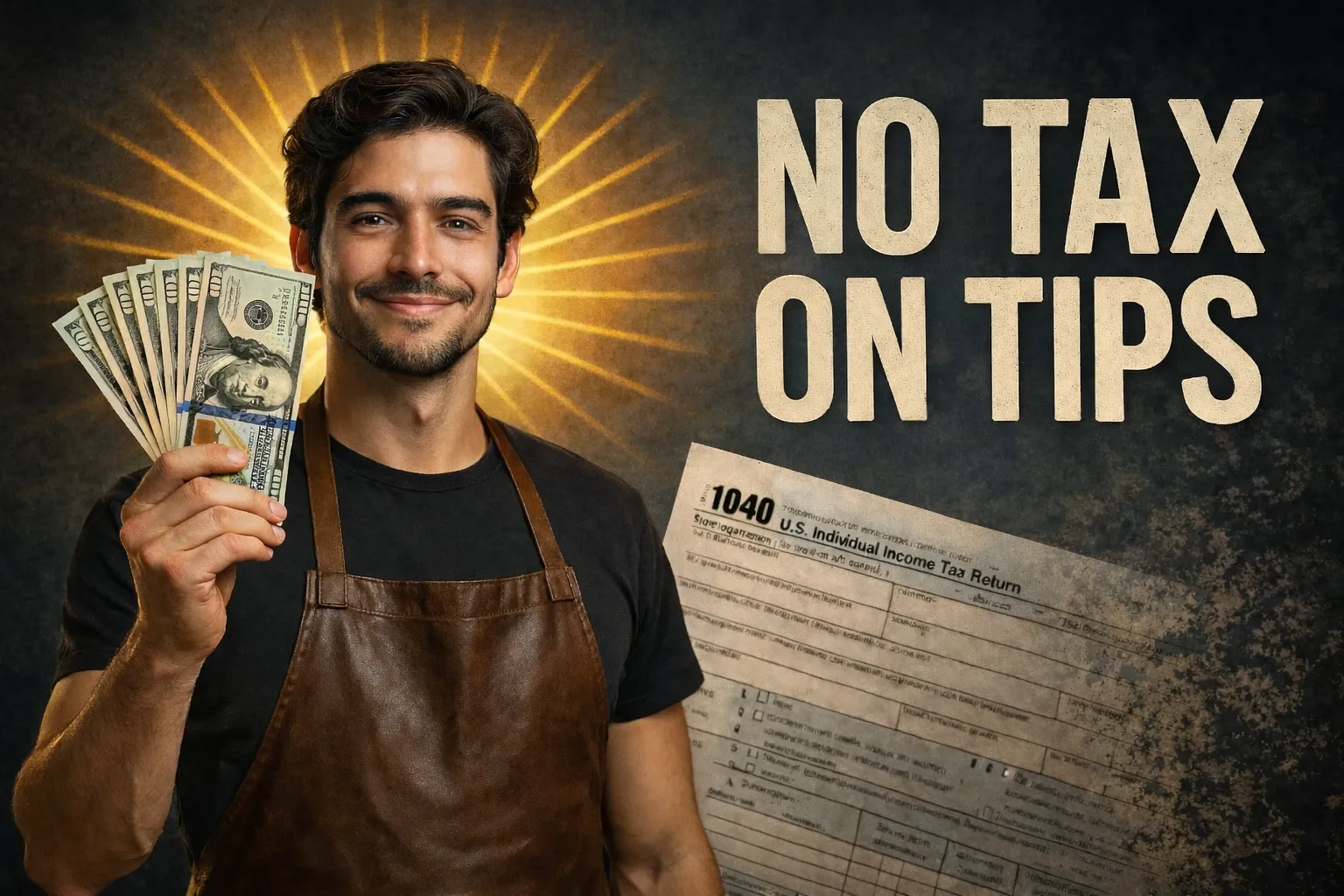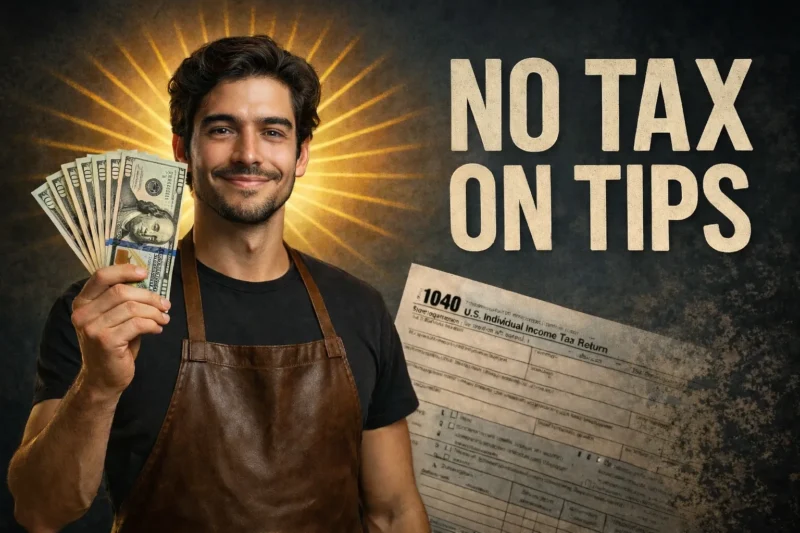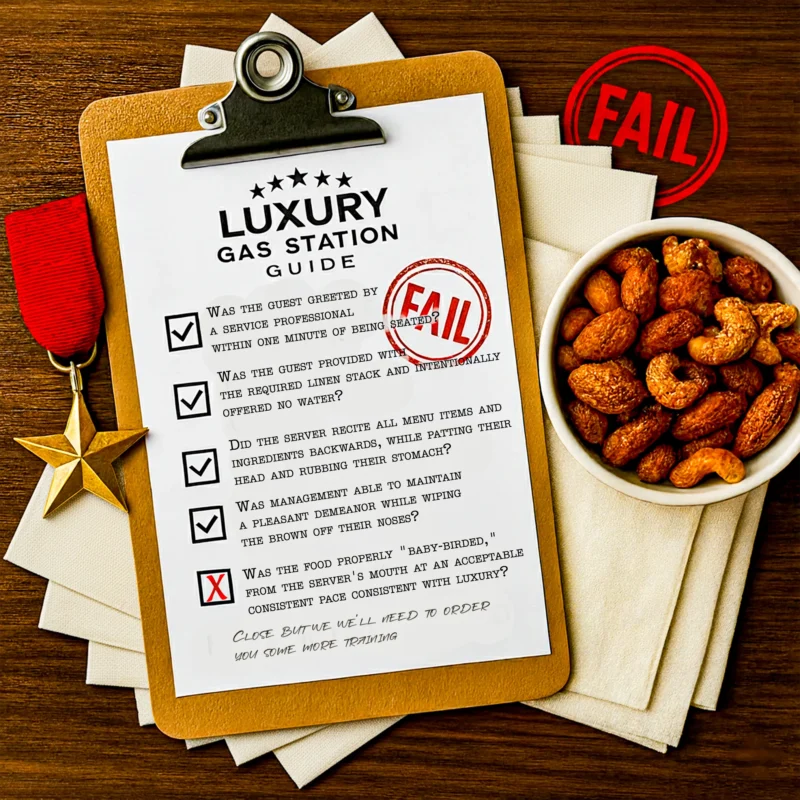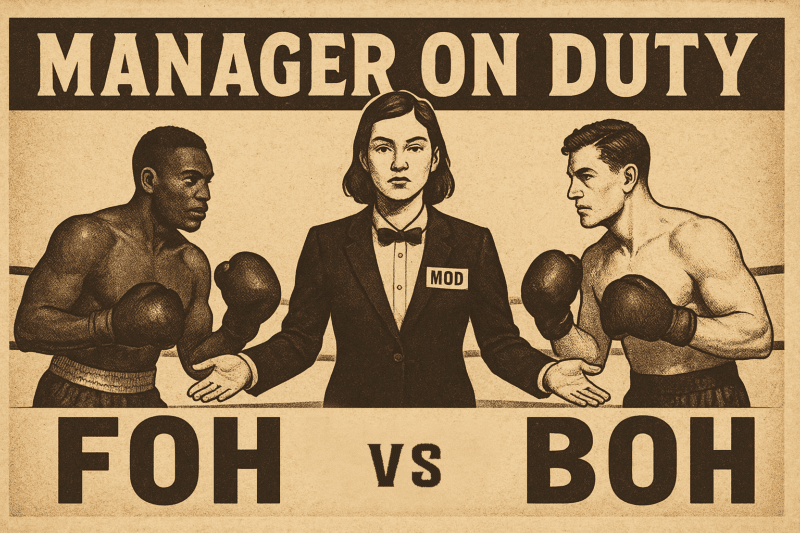"I Was Wrong, Kinda": The No Tax On Tips Bill Passed!
What the Senate's Vote Means for Your Money and Taxable Income
| Estimated Reading Time: 6 Minutes
UPDATE: The No Tax on Tips Bill Is Now Law
Here’s What Changed
Updated July 4, 2025 | President Trump signs it into law at 5 PM ET
It actually happened.
As of July 3, 2025, the House passed the “One Big Beautiful Bill,” a massive package of legislation that included the “No Tax on Tips” provision. This is called “Christmas treeing” politicians used this popular idea to help grease it through, attaching it to a larger tax bill full of reforms, deductions, and incentives.
And it worked.
President Trump is scheduled to sign it into law at 5 PM Eastern today. Once he does, it’s official.
But this isn’t the same bill the Senate passed back in May.
If you read our first breakdown (which is still live below this update), here’s what’s different now:
It’s Temporary Now
The original bill passed by the Senate (S.129) was permanent. This version includes an expiration date after 2028, meaning Congress will have to vote again to keep it alive beyond that year.
Expanded Definition of Who Qualifies
The final law clearly includes both W-2 employees and independent contractors. This means:
-
Traditional tipped workers like servers and bartenders are covered.
-
Rideshare drivers, valets, delivery drivers, and other gig workers can also qualify, if they report tips and meet income limits. This is Amazing!
This was unclear in the original version, which focused more narrowly on employees who receive W-2s.
- You must have worked in a customarily tipped job as of December 31, 2023, with the Treasury to publish the official list of these occupations within 90 days.
- You also need a valid Social Security number to qualify.
Updated Definition of a Tip
The bill now references the IRS’s expanded definition of a tip, which includes:
-
✅ Cash or digital payments (Venmo, Zelle, etc.)
-
✅ Tips pooled or shared by coworkers
-
✅ Tips passed through an employer, even if paid by credit card
Basically, if it was voluntarily given by a customer and reported properly, it counts.
❌ Mandatory service charges (like banquet fees) do not count as tips for this deduction.
MAGI Income Cap
To qualify, your Modified Adjusted Gross Income (MAGI) must be under $150,000 for single filers or $300,000 for joint returns. Make more than that, and the benefit starts to phase out.
When Does It Start?
The law takes effect immediately after being signed by the President, but since it applies to your annual federal income tax return, the benefits start with income earned in 2025.
-
You’ll still have taxes withheld from tips this year.
-
When you file your 2025 taxes in early 2026, you can deduct up to $25,000 in reported tips from your taxable income assuming you meet the income limits and other criteria.
This is not “tax-free tips” at the point of sale; it’s a deduction you’ll claim at tax time.
Other Key Details:
- Employers in beauty and personal service industries (barbers, salons, spas) are now eligible for expanded payroll tax credits.
- In 2025, employers can use “any reasonable method” to estimate tips , a transition rule.
Sources: theguardian.com, nypost.com, barrons.com, abc7.com, journalofaccountancy.com, wsj.com, blog.taxact.com, waysandmeans.house.gov, washingtonpost.com
was wrong, I’ll admit it. I never in a million years thought this would actually come into fruition.
I mean, we’re not there yet, but it’s looking like a real possibility.
I’ll give it to the orange man for at least trying.
But what does this mean for tipped workers?
Is it only cash tips? Who benefits? Who loses? Will it pass?
This could put more money in your pocket. But not everyone wins. And it’s not quite what it sounds like.
Let’s break it all down in food and beverage terms.
So here’s how we got here: Donald Trump first proposed eliminating federal income taxes on tips during a campaign rally held on June 9, 2024 in Las Vegas, Nevada.
The idea began getting traction along the trail, so much that in 2024,
Kamala Harris surprised people by saying she’d support a version of the idea too.
Suddenly, it wasn’t just a partisan pitch.
In states with big service industry populations, people on both sides started paying attention.
As the pandering for votes continued.
The Meat:
Senator Ted Cruz (R-TX) introduced the No Tax on Tips Act (S.129) on January 16, 2025.
On May 20, 2025, the U.S. Senate unanimously passed the bill with a 100–0 vote.
Which is extremely unusual;
While it was anticipated that at least one senator would object,
given the bill’s implications and its association with President Trump’s campaign promises.
The vote stemmed from the use of a unanimous consent procedure typically reserved for non-controversial legislation.
Brought the bill to the floor, and no senator objected, allowing it to pass without debate.
“This bipartisan bill is a good idea. It has support from Democrats and Republicans, so we should pass it, well, as soon as possible, without any poison pills.”
Senator Jacky Rosen(D-NV)
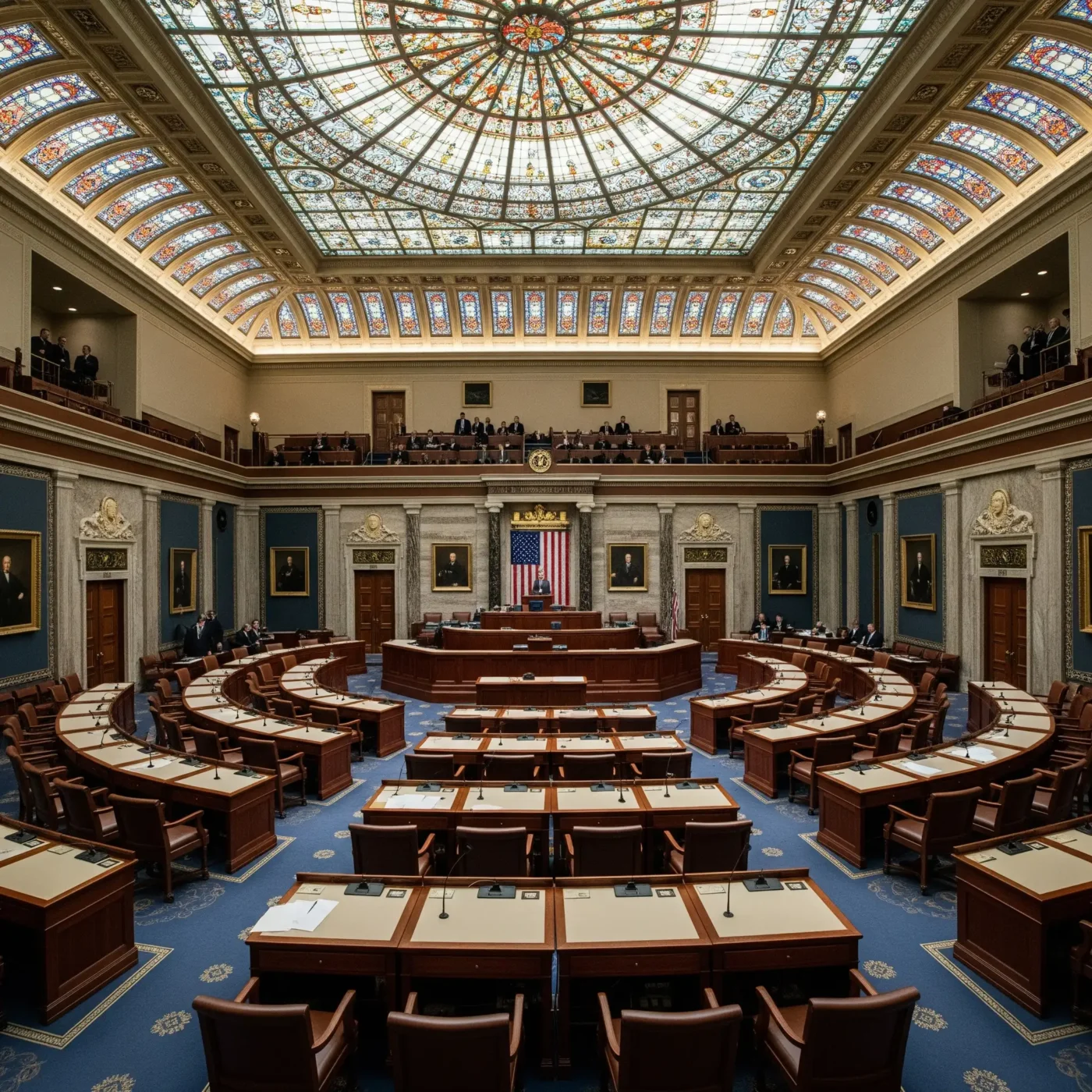
No Tax On Tips Act Senate Chamber |
And boom.
But hold up—it’s not law yet. Just because the Senate passed it doesn’t mean it’s official.
For this bill to become law, it still needs to pass the House of Representatives and then be signed by the President.
- Pass the House of Representatives (Republicans hold a slim majority: 221 out of 435 seats).
-
Be signed by the President, (Trump is currently president, so odds are in its favor if the House passes it).
Now let’s talk about what this would actually do if it makes it all the way.
So if this becomes law, here’s what you need to know:
-
- You’ll still have taxes withheld from your tips.
- Your employer will continue to withhold taxes on reported tips just like they should be doing already. That doesn’t change. This bill gives you the break later, when you file your taxes.
You’d get a deduction of up to $25,000 not tax-free income.
-
- This is a deduction, not free money. If the bill passes, you’ll be able to deduct up to $25,000 of your reported tips from your taxable income as long as:
- You earned less than $160,200 from that employer in the previous year.
- You properly reported your tips to your employer.
What counts as a “cash tip“?
-
- The IRS defines “cash tips” more broadly than just dollar bills:
- Tips received directly from customers.
- Tips paid in physical cash, or through credit cards, debit cards, Venmo, PayPal, Cash App, Zelle etc.
- Tips pooled or shared with you from coworkers.
- Tips distributed by your employer that were originally paid electronically by guests.
Join the Only F&B Magazine Made For the Industry, By the Industry.
Subscribe to our newsletter for exclusive insights, new articles, and a sneak peek at upcoming content that truly understands the F&B world.
Who Benefits ?
-
- Servers
- Bartenders,
- Barbacks Bussers,/SA’s
- Valets (depends on employment status see grey areas below)
- Hairdressers
- Nail techs
- Tattoo artists
- Hotel porters
… basically anyone who earns a significant portion of their income through tips and properly reports them.
While the IRS doesn’t give an exact number, “significant” usually means 20% or more of your income from tips.
For most F&B folks, it’s more like 50–90%.
If you live in a tip credit state (where your boss can legally pay you less than minimum wage because they assume you’ll make it up in tips),
this bill might finally give you a break at tax time.
But heads up, this also makes it less likely those states will raise the base wage for tipped workers anytime soon.
There are still grey areas valets and delivery drivers in particular.
If you’re an independent contractor or work through an app, you probably don’t.
If you report your tips to an employer, you probably qualify.
Who doesn’t benefit?
-
Back of house (BOH) employees like line cooks and dishwashers,
who keep the whole place running—get nothing from this.
Zero. Zilch. As usual.
Which is even more frustrating because this isn’t technically a “no tax on tips” bill
it’s a tax deduction that only helps those who report enough to matter. -
Gig workers like Uber drivers and Instacart shoppers who don’t report tips to an employer.
Which really sucks as they very much do deserve this credit. -
Valet drivers and delivery workers-? still unclear.
Grey areas about whether they qualify if they’re not considered traditional tipped employees or are paid through third parties.

Boh Left Out No Tax On Tips |
- Anyone who earns above $160,200 from a single employer.
-
Anyone who doesn’t report their tips.
-
Shady employers trying to game the system might think they can sneak through with fake tip amounts, but the IRS will likely be watching.
Do employers benefit?
In some ways, yes. If tipped workers feel more confident reporting tips, overall payroll tax math could shift in subtle ways.
But there’s no direct employer credit built into this bill, it’s geared toward employees.
How Much will It Really Help?
For some workers, this bill could make a noticeable difference, others, not so much.
It all depends on your filing status and overall income.
Let’s look at a couple of simplified examples:
-
Single/Restaurant worker/ $50,000/year with $10,000 in reported tips.
-
10% withheld = $5,000
-
Takes the standard deduction = $14,600
-
Taxable income without the bill = $50,000 − $14,600 = $35,400 → Estimated tax = ~$4,000
-
Taxable income with $25K deduction = $50,000 − $14,600 − $10,000 = $25,400 → Estimated tax = ~$2,500
-
Savings: $1,500 (Plus possibly a refund depending on credits and withholding)
-
-
Single /Server / $35,000/year with one child
-
10% withheld = $3,500
-
Standard deduction = $14,600
-
Child Tax Credit = $2,000
-
Without the bill → Taxable income = $20,400 → Tax owed = ~$1,500 → With credit = almost $0
-
With the bill → Taxable income = $20,400 − $10,000 = $10,400 → Tax owed = ~$750 → Refund of $2,750
-
But Wait, What About FICA and State Taxes?
-
-
This only applies to federal income tax.
-
You’ll still pay state tax (unless you live in a state with no income tax).
-
You’ll still pay FICA taxes (Social Security & Medicare) on all reported tips.
FICA is the money that gets taken out of your paycheck to fund Social Security and Medicare. Everyone pays it—tipped or not. Even with this new bill, you still owe it on all reported tips.
That’s actually a good thing—because the more you pay into Social Security, the more you’ll eventually get back if you retire or need disability benefits.
-
Criticism and Pushback
Not everyone’s thrilled. Economists and labor advocates have argued this bill may do more harm than good:
-
-
It could incentivize the expansion of tipped work while undermining wage increases.
-
Advocates argue that eliminating sub-minimum wages would be more impactful.
-
“According to Brookings, 37% of tipped workers already don’t pay federal income tax due to low earnings. So this bill might not help them at all.”
-
So this would do little or nothing for them
“Without having these earnings floors in place, the minimum wage floor and calling for an increase,
workers are vulnerable to exploitation and inequality in the labor market which is harmful overall for the economy.”
Lena Simet (Human Rights Watch)
Final Steps Before It Becomes Law
This bill passed the Senate on its own, and it’s now part of a bigger tax plan called the “One Big Beautiful Bill.”
That big bill barely passed the House, and now the Senate is reviewing it.
Some senators want to make changes, so it might take a few more rounds.
Trump wants it signed by July 4, so if all goes smoothly, it could become law this summer.
Either way, the “No Tax on Tips” part has strong support and will likely pass whether by itself or as part of the bigger bill.
So yeah, it’s not exactly no tax on tips.
If it were truly that, there wouldn’t be a $25K cap.
I make around 85 percent of my income from tips, like most of us and I will probably benefit a little.
But let’s be real: this bill helps those who earn the most in tips.
The ones scraping by at the bottom? Not so much.
And it’s a deduction, not a refund. I wish they had included something for BOH workers too.
That said, I’ll admit I won’t be mad at a few extra dollars back at tax time.
It’s something, not nothing,
Though I ponder of something great that could truly make a difference for everyone in our industry
✅ UPDATE: THE 2026 RULES ARE LIVE
Now that the Senate has finalized the OBBBA and the IRS has released Schedule 1-A, the wait is over. You can see the final list of job codes and the step-by-step roadmap for your 2025 refund here:
Step-by-Step Guide to Filing Tip Tax Deductions in 2026
.
